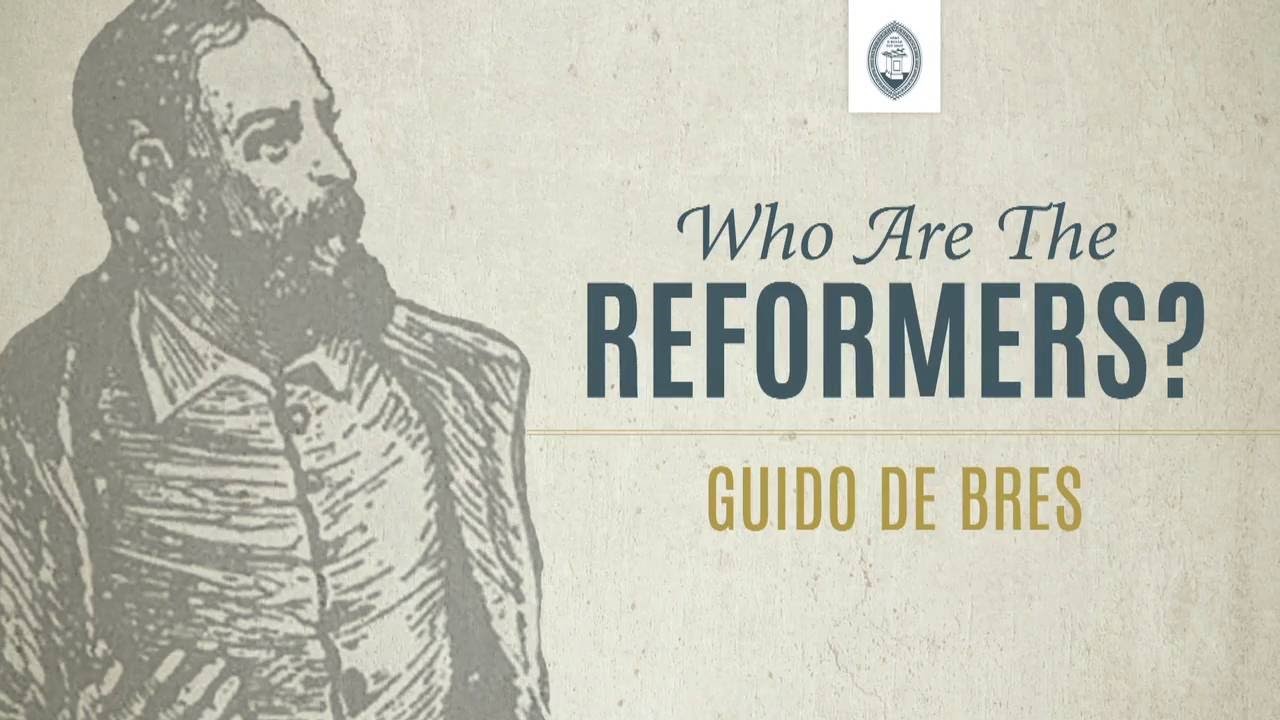Guido de Bres
To bring more attention to our Christian heritage, last week I mentioned that in the month of October we would explore various themes and people during the 17th and 18th centuries. Previously, we looked at the revival of psalm singing in Geneva thanks to the labors of John Calvin. Today, we want to focus on an individual that has escaped many in Presbyterianism—Guido de Bres. He authored what is known as the Belgic Confession, during the mid-1500s. However, his life is particularly instructive for us.
In 1522, de Bres’ mother was listening to a sermon, and it prompted her to pray, “Lord would you give me a son called to preach?” Years later, God answered her prayers through Guido. He grew up in Roman Catholic Belgium after the Reformation had already started. When he was a teenager, he obtained a Bible and began to pour over it, as well as the works of various Reformers. It was as he did so that Guido de Bre

s was converted. During his 20s, he felt an inward call to do more studies, which led him to England, under the Protestant king Edward VI’s reign. While there, he was trained through men like Jan Laski and Martin Bucer, who pressed the Doctrines of Grace more deeply into his soul.
By 1552, de Bres was ready to return to his hometown of Mons to minister to people, despite the dangers. Many Protestant missionaries to Belgium had been killed for teaching that salvation was ‘by grace alone, through faith alone, in Christ alone.’ And yet, Guido was committed to Gospel proclamation, regardless of the cost. Before long a congregation was secretly organized, and Reformed teaching grew in the area. For years, de Bres traveled around preaching and pastoring. Following a 24-month stint in Geneva with John Calvin, Guido returned to Belgium, this time to the city of Doornik. While there he met Catherine Ramon, whom he eventually married. She agreed to receive his hand, knowing their life would be hard, and it was difficult.
A year into his time at Doornik, members of his congregation walked down the streets singing psalms, which was forbidden. De Bres had cautioned them not to do so, because of the trouble it might bring the entire congregation. Eventually troops were sent into the city to root out the Protestants, and Guido fled with his family to France. Eventually, he returned to Belgium to attend a meeting of the leaders of the Reformed churches in the Belgic Lowlands. The Lord had blessed these churches and caused them to grow despite persecution. However, during his visit, someone recognized de Bres and turned him over to the authorities. For weeks, he was imprisoned in the castle at Doornik, and in spite of his poor treatment and harsh conditions, he used the time to write a treatise on the Lord’s Supper (over 200 pages, mainly penned in the dark) and numerous letters, one of which was to his wife.
“Now remember that I did not fall into the hands of my enemies by mere chance, but through the providence of my God who controls and governs all things, the least as well as the greatest … I pray you, my dearly beloved, to console yourself with meditation on these things. Consider the honour that God has done you, in giving you a husband who was not only a minister of the Son of God, but so esteemed of God that he allowed him to have the crown of martyrs … Farewell, Catherine, my dearly beloved. I pray my God that he will comfort you and give you contentment in his good will …
At the prison, April 12, 1567.
Your faithful husband, Guy de Bres, minister of the Word of God at Valenciennes, and presently prisoner for the Son of God at the aforesaid place.”
He was hung May 31, 1567. What do we learn from his life? Certainly, there is much to glean from a man who composed a doctrinally robust confession and who was faithful amidst persecution. Yet, considering the morning sermon from Mark 8, on living the Cross-shaped life, perhaps we can also see an example of someone who sought to deny himself, take up the cross, and follow Jesus, no matter where he led. That is the charge before us, to gladly die to self and live unto Christ regardless of the struggles and suffering we face. How can we do it? Remember Samuel Rutherford’s words, “If you will bear the Cross, the Cross will bear you.” Meditating on Christ’s passion will strengthen us to face our own. In addition, seeing the faithful testimony of the “great cloud of witnesses” that have gone before us will help us persevere joyfully and persistently. That’s what we have with Guido de Bres. May we follow him as he followed Christ. —Pastor Clif